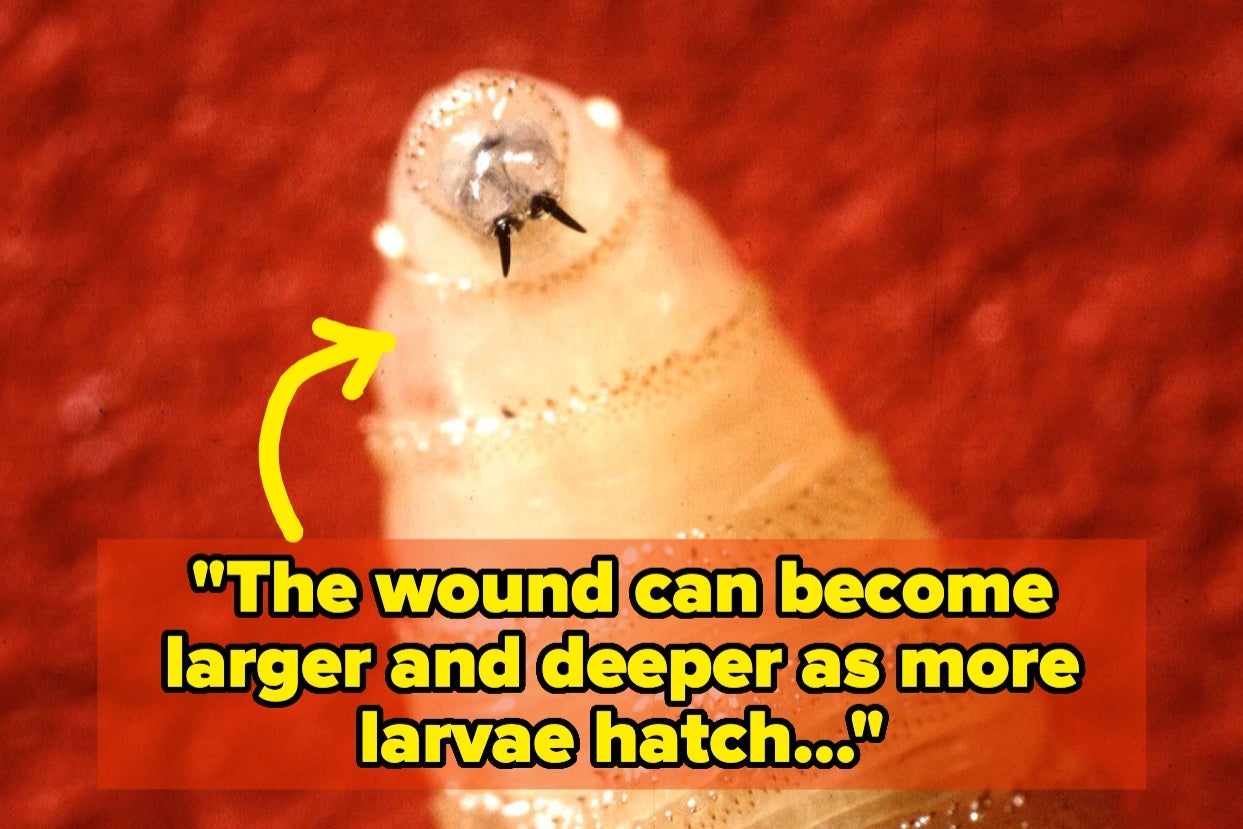Health
Maryland Reports First Human Case of Flesh-Eating Parasite

A Maryland resident has become the first confirmed human case of a flesh-eating parasite linked to travel from a country currently experiencing an outbreak. The patient returned from El Salvador, with the diagnosis confirmed by the Centers for Disease Control and Prevention (CDC) on August 4, 2023. Health officials report that the individual has since recovered, and no further transmissions to other humans or animals have been identified.
This rare case involves the New World screwworm, which infests the flesh of warm-blooded animals. The CDC explains that female screwworm flies lay between 200 to 300 eggs on open wounds and mucous membranes. As larvae hatch and feed on living tissue, the affected area can become increasingly severe, leading to significant damage. While livestock are typically the primary victims, human infestations are exceptionally rare and described by the CDC as “very painful.”
Recent reports indicate that countries in Central America and Mexico have seen increased cases of infestations in both animals and humans. Despite the troubling nature of the case, Andrew G. Nixon, a spokesperson for the U.S. Department of Health and Human Services, reassured the public that “the risk to public health in the United States from this introduction is very low.”
To combat the screwworm, the U.S. effectively eradicated its populations over 50 years ago using a method that involved breeding and dispersing sterile male flies to mate with females. In a recent announcement, Brooke L. Rollins, the U.S. Secretary of Agriculture, revealed plans to build a sterile fly facility in Edinburg, Texas, to bolster eradication efforts.
Concerns about potential future cases remain, particularly given the recent travel history of the patient. Laurel Bristow, an infectious disease researcher at Emory University, stated that the current situation should not raise alarm. “We don’t currently have the fly in the United States,” she noted, adding that the individual is receiving treatment, and health officials are monitoring the situation closely.
Bristow emphasized that the primary concern lies with livestock and wild animals, rather than human cases. “The maggots would have to complete their life cycle in the patient, drop off, and mature into flies, find mates, and ultimately lay eggs in animals or people,” she explained. This sequence of events is considered unlikely in a human patient.
For travelers to regions experiencing screwworm outbreaks, Dr. Amesh Adalja from the Johns Hopkins Center for Health Security recommends several precautions. He advises covering any open wounds, avoiding outdoor sleeping, and using insect repellents, especially in rural areas where the fly is prevalent.
Prevention remains a priority, with suggestions to treat clothing and gear with products containing 0.5% permethrin. Sleeping indoors or in screened rooms is also advisable. Bristow reassured that human cases of screwworm infestations are still exceedingly rare, and general precautions taken against mosquito-borne diseases would suffice.
Signs of a potential infestation include wounds that show signs of maggots or fail to heal properly. The CDC states that the only treatment for New World screwworms involves the physical removal of larvae from the affected tissue. Health care providers should be prepared to assist in managing such cases promptly.
As public health officials continue to monitor the situation, the focus remains on preventing the spread of this parasite and protecting both human health and livestock, particularly in the agricultural sector.
-

 World1 day ago
World1 day agoCoronation Street’s Shocking Murder Twist Reveals Family Secrets
-

 Entertainment4 months ago
Entertainment4 months agoKate Garraway Sells £2 Million Home Amid Financial Struggles
-

 Entertainment3 months ago
Entertainment3 months agoAnn Ming Reflects on ITV’s ‘I Fought the Law’ Drama
-

 Health3 months ago
Health3 months agoKatie Price Faces New Health Concerns After Cancer Symptoms Resurface
-

 Entertainment3 weeks ago
Entertainment3 weeks agoCoronation Street Fans React as Todd Faces Heartbreaking Choice
-

 World3 weeks ago
World3 weeks agoBailey Announces Heartbreaking Split from Rebecca After Reunion
-

 World5 days ago
World5 days agoKevin Sinfield Exceeds Fundraising Goal Ahead of Final Marathons
-

 Entertainment3 months ago
Entertainment3 months agoCoronation Street’s Carl Webster Faces Trouble with New Affairs
-

 Entertainment4 days ago
Entertainment4 days agoTwo Stars Evicted from I’m A Celebrity Just Days Before Finale
-

 Entertainment3 months ago
Entertainment3 months agoWhere is Tinder Swindler Simon Leviev? Latest Updates Revealed
-

 Entertainment4 months ago
Entertainment4 months agoMarkiplier Addresses AI Controversy During Livestream Response
-

 Science2 months ago
Science2 months agoBrian Cox Addresses Claims of Alien Probe in 3I/ATLAS Discovery





















